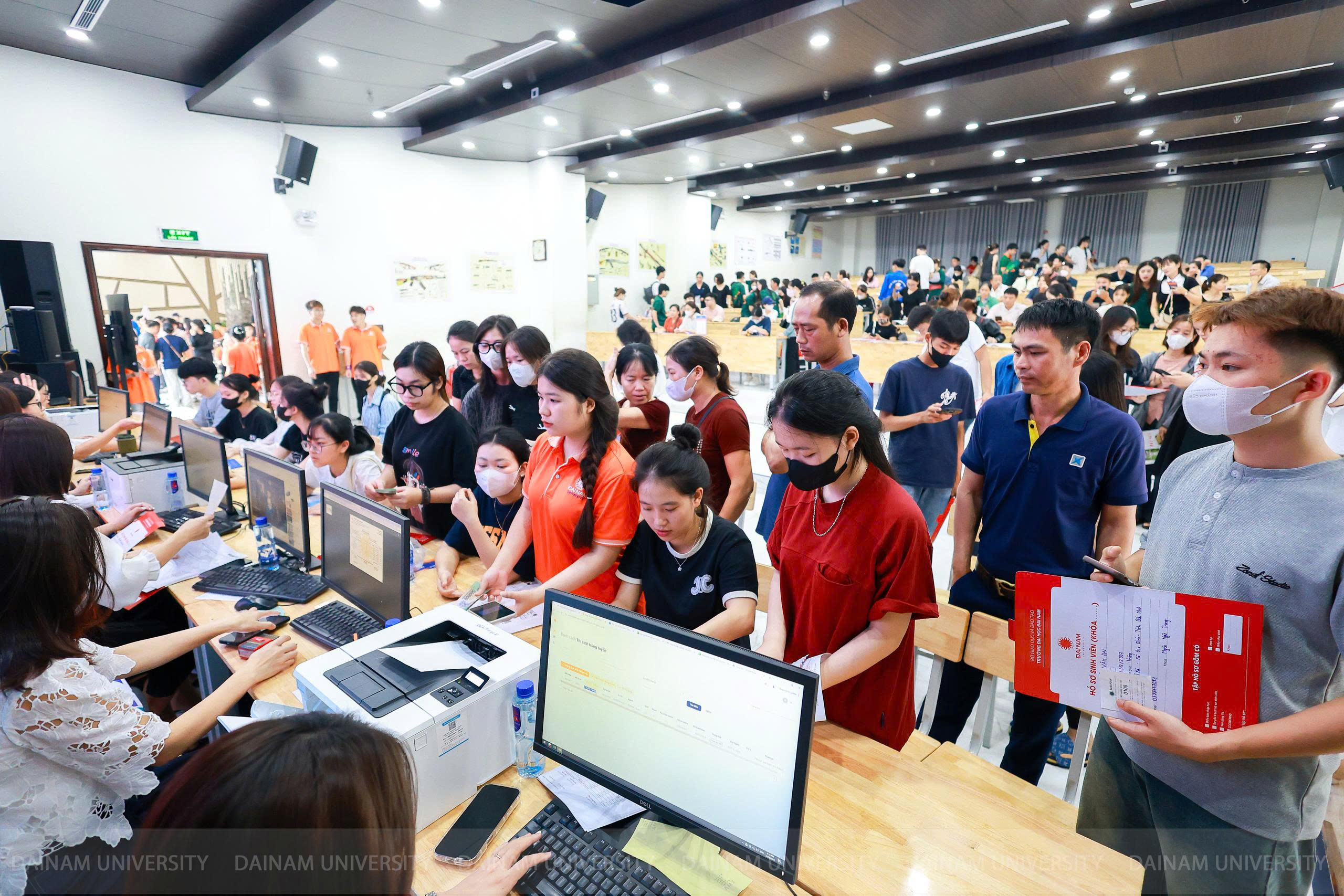"Pocket" experience for medical students when studying clinical at the hospital

After theoretical lessons in the lecture hall, practical sessions in the skills-lab... and medical skills training, medical students will take clinical practice exams at the hospital. In order to complete the internship targets as well as accumulate more knowledge, experience, and perfect future career skills, in addition to great efforts, medical students need to have thorough preparation for going to the hospital. So, when going to the hospital for clinical practice, what do medical students need to prepare? Below is the experience of going to clinical practice at the hospital for medical students shared by MSc., Dr. Ta Thi Thanh Huong - lecturer of the Faculty of Medicine, Dai Nam University.
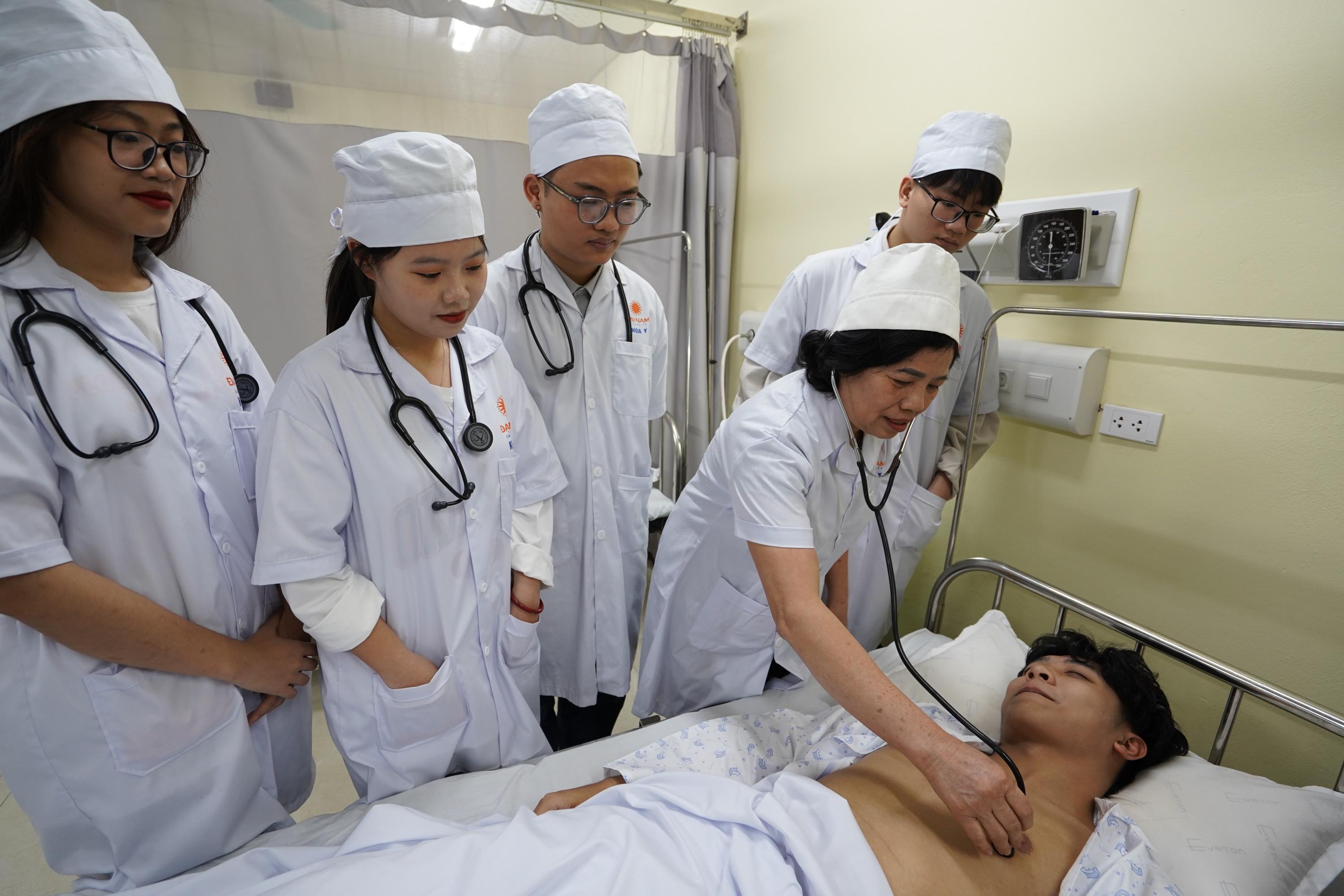
Dai Nam University Medical students are trained to ensure proficiency in skills before going into clinical practice at the hospital.
What is clinical practice in hospital?
Clinical practice is a special subject of the medical profession. “Lâm” means to approach, “sàng” means bed (meaning hospital bed). Clinical practice means learning what happens to patients in the hospital, including signs, symptoms, complications of a disease or the patient’s reactions to the disease, the progression of the disease during treatment, the needs for care, rehabilitation or even the patient’s thoughts, wishes, and desires...
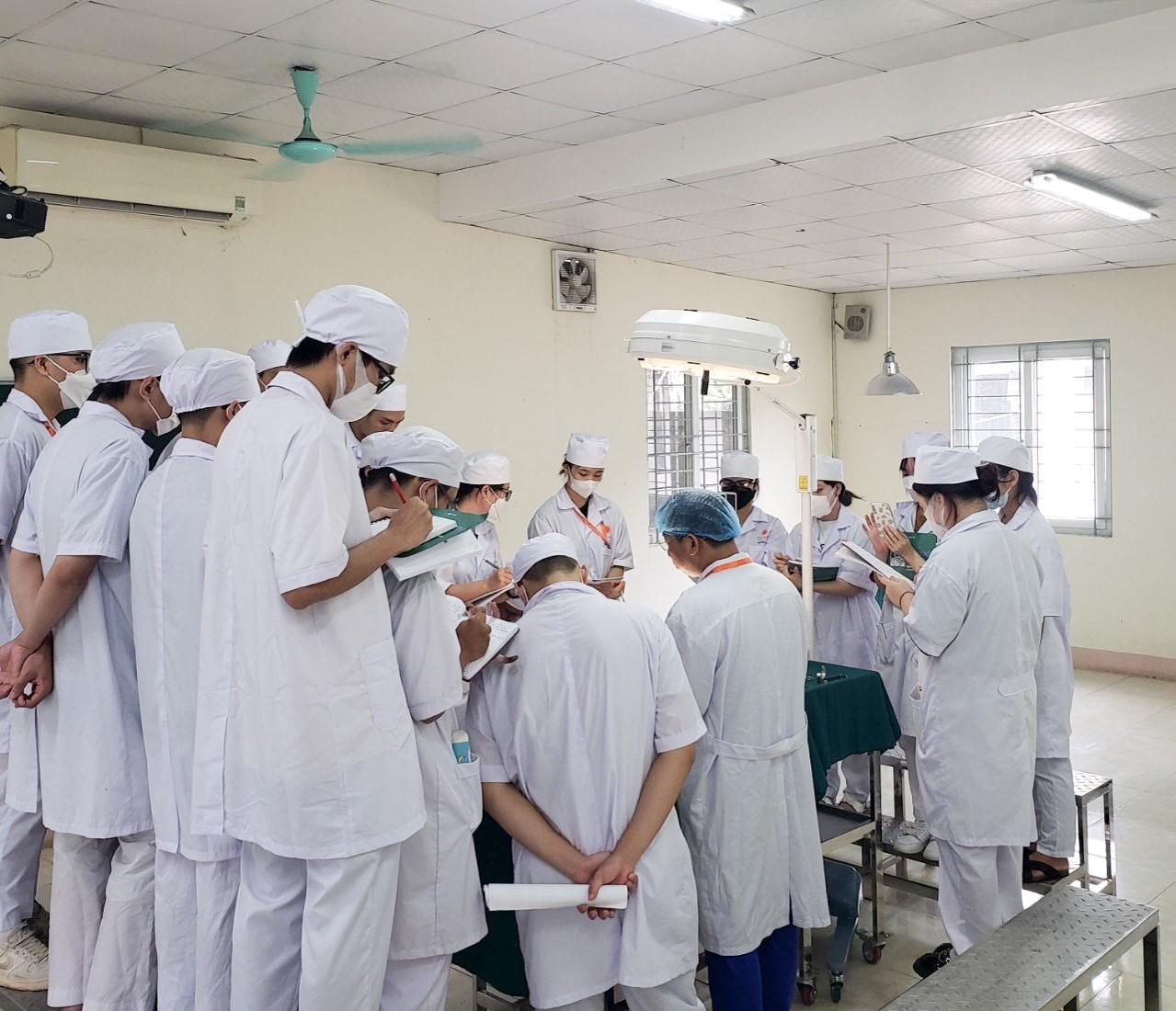
How is clinical learning in a hospital different from learning on a model?
Learning clinical practice in a hospital is very different from learning on models in skill-labs and even more different from learning theory at school. Specifically:
When studying theory, students learn by disease, that is, from disease we will learn about clinical and paraclinical symptoms, how to make a definitive diagnosis, differential diagnosis and treatment, prognosis, and disease prevention.
But when studying clinical medicine at the hospital, we do not start with a disease but start with the symptoms of the disease to have a preliminary idea of what the disease is and then request tests to serve the diagnosis. When we have the test results, we will have to analyze the clinical symptoms combined with the analysis of the test results to diagnose what the disease is and decide how to treat it, then we need to monitor the patient's daily progress to adjust the treatment regimen accordingly...
Therefore, when studying clinical practice, we must always ask why, why and must find ways to answer. When you cannot answer, do not hesitate to ask your friends, ask medical staff, ask seniors who are studying with you and clinical instructors. In particular, there are also many issues that you will learn from patients. Therefore, do not be afraid to communicate with patients.
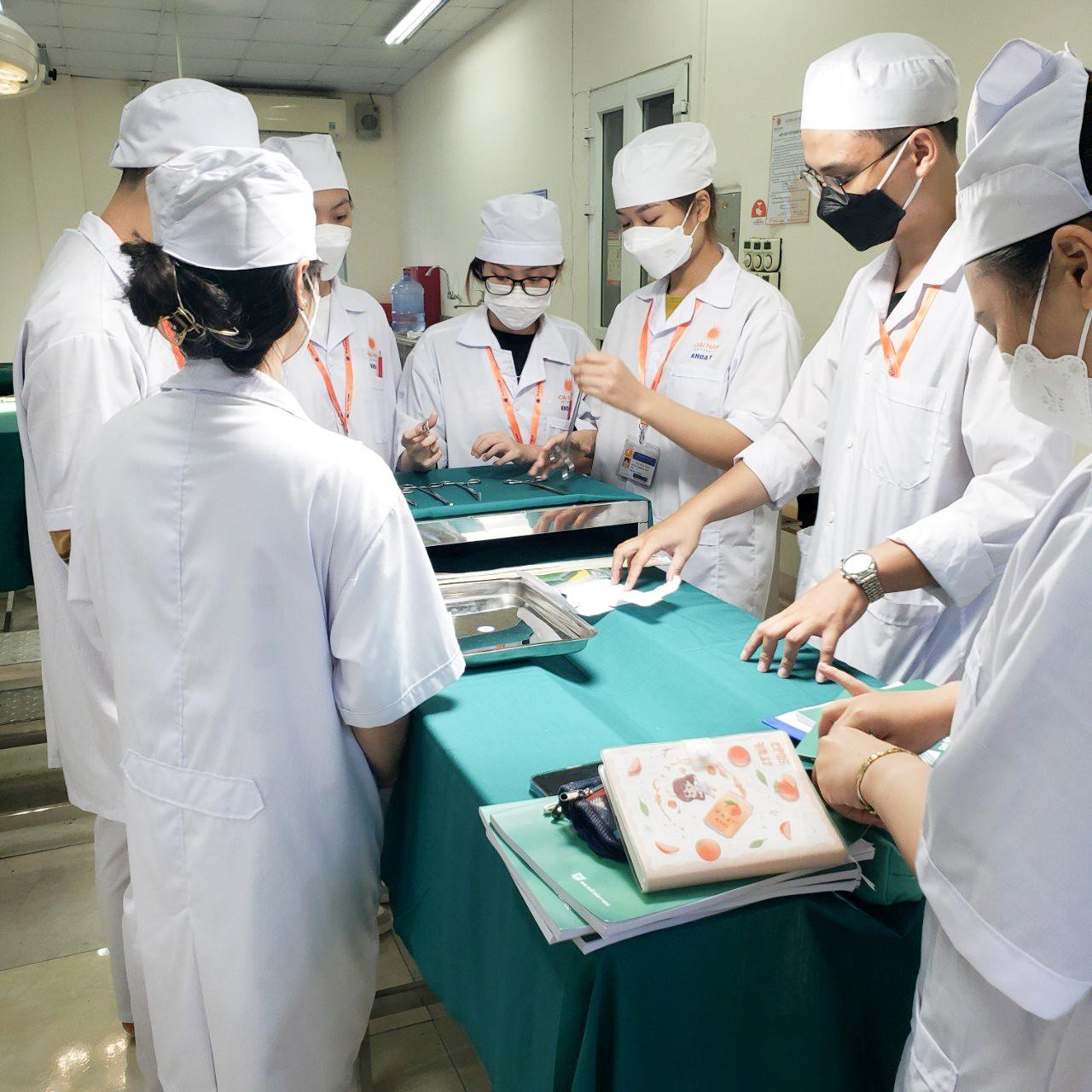
What to do to get the best results in clinical training sessions at the hospital?
- Prepare well: To achieve good results for the clinical practice at the hospital, the first thing medical students need to do is prepare, including: Health, blouse, headphones, clinical notebook, pens...
- Review and systematize knowledge: Review the theory of diseases that have been learned, review the questioning and examination procedures that have been learned in the Medical Skills Training course. In addition, you should research and read more books about diseases or topics before going to the hospital.
- Grasp theoretical knowledge firmly: The prerequisite to help you study clinical medicine effectively at the hospital is to grasp theoretical knowledge firmly.
- Not afraid of difficulties or hardships: Must adhere to the weekly study schedule, have good communication skills with medical staff, patients, and patients' families, and not be afraid of difficulties, hardships, or dirt, always try to complete assigned tasks well in each study session and each shift.
- Make the most of your time: Absolutely do not waste time gathering in the hospital hallway to talk privately or look at your phone.
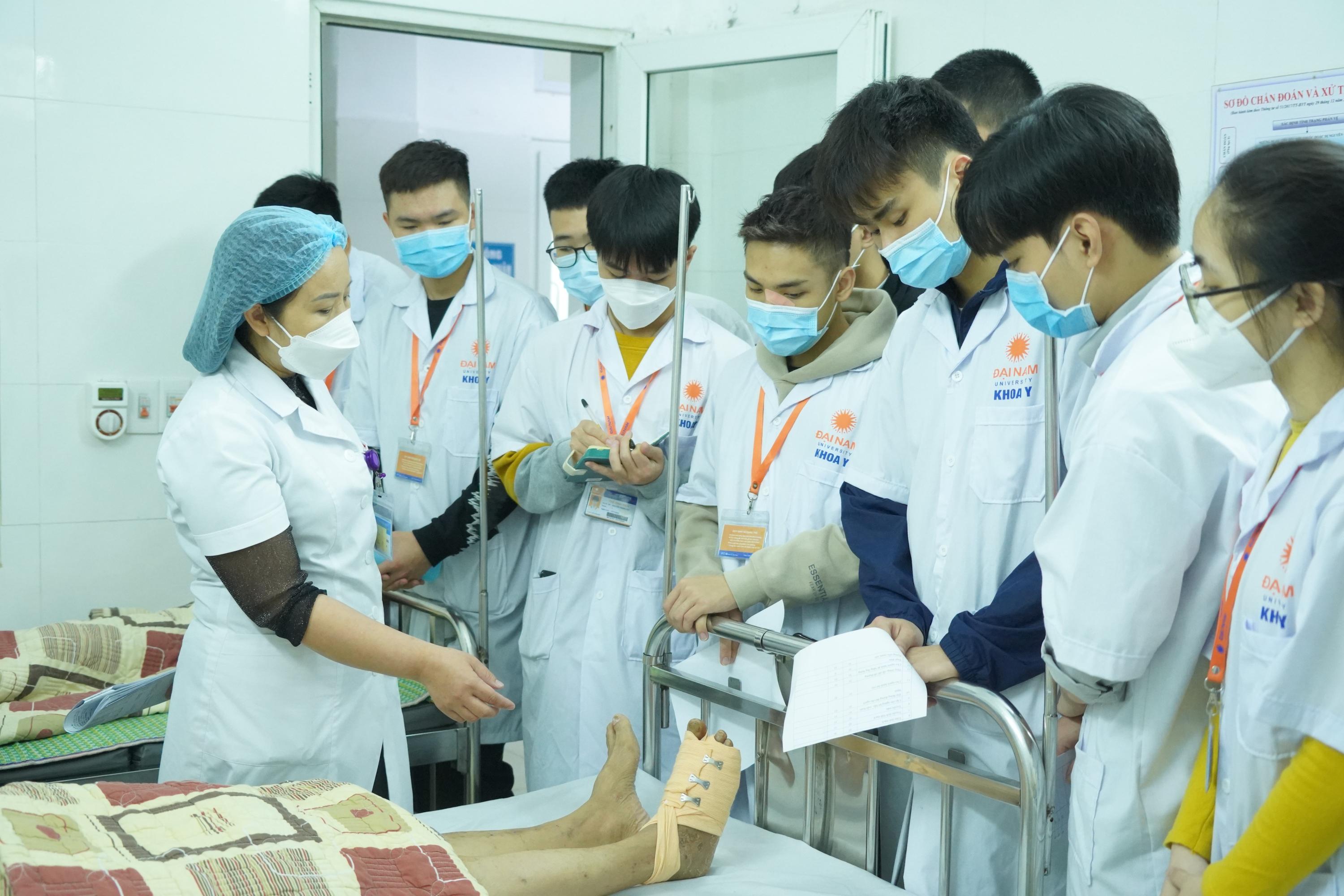
Medical students of Dai Nam University practice clinical practice at Ha Dong General Hospital.
- Observation: There are many learning methods, but observation is a very effective learning method in the hospital. You should take every opportunity to go to the patient's room, carefully observe everything that happens during the lessons: from the layout of the department; the way doctors and nurses ask questions, examine patients, perform procedures on patients; how patients react to medical staff; how the signs and symptoms of the disease progress and unusual phenomena such as the color, quantity, and properties of secretions or fluids in the drainage tubes from the patient's body...
When you know how to observe gradually, you will form a skill called "clinical reflex", which means that just by looking, listening, and making quick contact, you can roughly think of what disease the patient may have, what the prognosis is, or what signs require immediate emergency treatment.
- Arrive at the hospital 30 minutes early: Every day, you should arrive at the hospital 30 minutes early to examine new patients with typical symptoms and patients on duty to prepare medical records for the meeting, discuss with your friends and agree on questions to ask the teacher during the meeting.
- Take complete and detailed notes: In order for the ward rounds and medical record reviews to yield good results, you need to prepare carefully, examine the patient, take full notes of the necessary information for reporting and write down the questions you need to ask the teacher in the notebook. The assigned group needs to examine the patient and prepare the medical record carefully for presentation.
- Should have a notebook: Another important point is that medical students should have a small notebook to write down anything that they feel is interesting or useful during the sessions when the teacher/teacher goes to the room or reviews the patient's medical records or situations during the night shift. When reviewing for the final exam of the internship, you should review the content of these notes, it will be very useful. You should save this notebook for the next internships, gradually accumulating a lot of valuable experience and knowledge throughout the clinical learning process. This notebook is even very necessary for the first years when you first practice.
In particular, to complete the clinical indicators, you need to take advantage of every opportunity to visit doctors and nurses to examine, perform procedures and treat patients during self-study sessions, during duty hours or on Saturdays, Sundays and holidays. First, carefully observe each examination and procedure movement of doctors and nurses. Once you have mastered these skills, you should proactively request to work under their supervision.
MSc. Dr. Ta Thi Thanh Phuong - Lecturer of Faculty of Medicine, Dai Nam University
Register for admission consultation 2025
scholarships and tuition support worth up to 55 billion VND

scholarships and tuition support worth up to 55 billion VND


